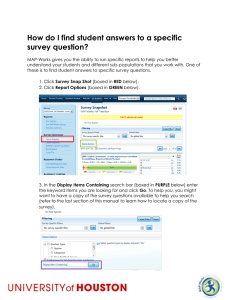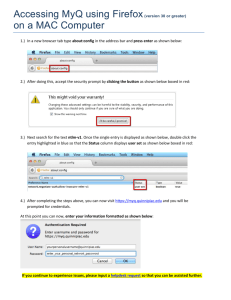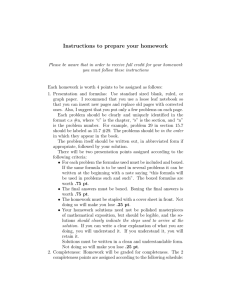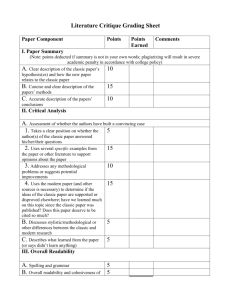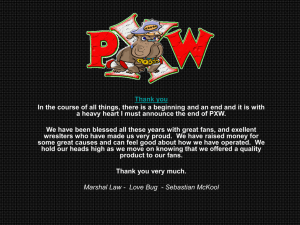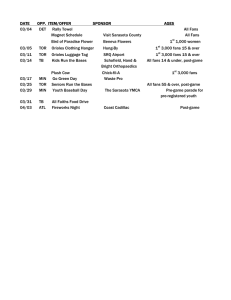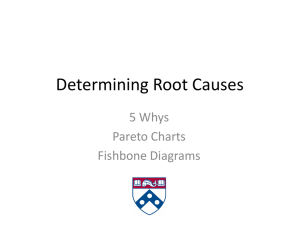Welcome to Our Presentation
advertisement
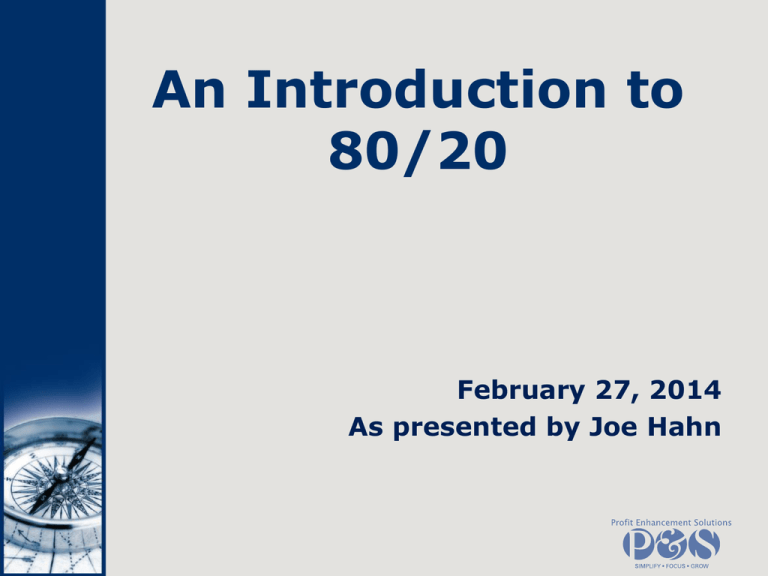
An Introduction to 80/20 February 27, 2014 As presented by Joe Hahn What is 8020? Also called “Pareto Analysis” Discovered by Vilfredo Pareto in 1897 80% of the output comes from 20% of the input Consider it a rule of nature Put simply … a few things are critically important, while the vast majority of things are worthless The Premise of the 80/20 Principle Transaction activity, product variation, customer multiplicity, and complexity are the root cause of all overhead cost 20% of the items in any uniform group will drive 80% of it Success comes from eliminating the complexity and focusing on the core products and markets Treat them differently Use 80/20 to study every aspect of your business Products Customers Suppliers Inventory Product Cost Sales Force Geographic Distribution Anything you want to study So… 80/20 is the art of doing a few things spectacularly well…at the chosen expense of the rest!!! You are better off than 98% of all Americans IF… You finish high school You have a job, any job You get married and stay married You have no credit card debt Want your children to be in the top 10% of all students? Make sure they get enough sleep Make sure they eat properly Make sure they show up for school Make sure they pay attention Make sure they do their homework Rule of 72 72/interest rate = number of years for your money to double $1,000 invested today at 2% is $2,000 in 2044 $1,000 invested today at 12% is $64,000 in 2044 Quartile Analysis Quartile Report Customers % of Business % of Effort 1 - 25 89% 25% 26 - 50 7% 25% 51 - 75 3% 25% 76 - 100 1% 25% Approximately half of our effort supports 96% of our Business. The other half supports 4%. Absolute Rules vs Classic Arguments Absolute Rules: Classic Arguments: Not every customer is a good customer! “The small customers of today are the big customers of tomorrow.” We make much more money on our biggest customers than we think we do…and lose much more on our smallest ones than we think we do. “If we get rid of the little customers, we have nothing to fall back on if we lose a big one.” “Some big customers buy small products and vice versa.” QUAD REVIEW A PRODUCTS A CUSTOMERS Q1 Q2 “THE FORT” Q3 B CUSTOMERS B PRODUCTS “Transactional” “NECESSARY … But not desirable” Q4 “Eliminate” 11 Four Steps to 80/20 1. Weed the Garden Simplify products, customers and processes 2. Separate Tomatoes from Pumpkins Separate unlike businesses 3. Give the Plants Only the Water They Need Apply the minimum number of resources needed to support the critical few (the 80’s) 4. Harvest Efficiently Simplify and streamline methods and transactions for the 80’s The Classic Prescriptions YES, BUT MINIMUMS VISA RESPONSE TIME DIFFERENTATION YOUR IMAGINATION YOUR BEST CUSTOMERS OUGHT TO BE “RAVING FANS!!!” Mirror, mirror on the wall … which is the greatest tool of all? Product Line Simplification, by far, and its close friend, CUSTOMER SIMPLIFICATION REPORT CARD 1. 2. 3. 4. 5. Is your service line “boxed?” Are policies implemented to drive boxed services? Has a specials policy been defined and implemented? Are the customers “boxed?” Are policies implemented to drive the sales of “boxed” customers? 6. Have key account and raving fans programs been established? 7. Have our processes been set up to maximize the efficiency on key core services? 8. Is the business fully segmented? 9. Are business processes simplified? 10. Are key leaders / “winning” people in place? 11. Do we understand the 80/20 market drivers? 12. Do we clearly know our three year objective? BENEFITS OF 80/20 Your best customers are much happier Your quality is better Your delivery performance is better Your costs are lower You have fewer, better, happier employees You have better growth You make more money You don’t work as hard
